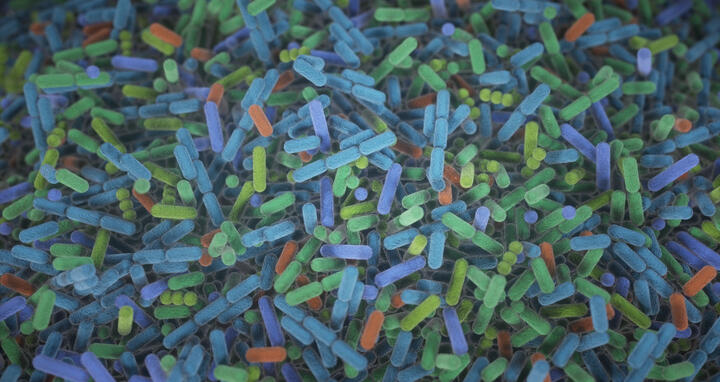The real story about probiotics
Our guts are full of bacteria – much of it good. Researchers are learning more and more how this microbiome is linked with a range of health and disease conditions. Probiotics – mixtures of good microbes such as those found in yogurts, supplements and some fermented foods – are widely believed to be beneficial, or at the very least, not harmful. But a 2018 scientific paper shook that understanding, showing that the probiotics tested there slowed down microbiota recovery following a course of antibiotics.
To assess the state of knowledge and bring clarity to the probiotics discussion, a panel of eight experts in clinical medicine, biostatistics, basic microbiome science and probiotic microbiology was convened. Among them was Dr. Sofia Forslund, who leads the Host-Microbiome Factors in Cardiovascular Disease Lab at Max Delbrück Center, and is part of the Experimental and Clinical Research Center (ECRC), a joint center of Max Delbrück Center and Charité – Universitätsmedizin Berlin.
The International Scientific Association for Probiotics and Prebiotics recently published its analysis in Nature Reviews Gastroenterology and Hepatology. The bottom line: there is not enough evidence available to make large sweeping conclusions about probiotics for antibiotic recovery one way or the other. The answer is much messier and likely depends on specific probiotic strains and individual health conditions. Forslund cautions to not give up on probiotics – quite the opposite. But there is much work to be done to determine which probiotics help which people and in what scenarios.
We talked with Sofia Forslund about the panel’s process and findings.
Why did the panel begin by analyzing studies about how antibiotics impact the gut microbiome?
In this review, we systematically try to inspect our basic assumptions. We should question what we actually know. Based on our literature review, we can confidently say: yes, antibiotics do change the gut microbiome – more in some people, less in others, depending on many factors, such as their starting overall health state and repeat antibiotic exposures. Antibiotics are of course necessary to control certain infections.
What did you find about probiotics?
A number of meta reviews have shown that probiotics have benefits, and there are individual studies that have showed statistically that probiotics have a protective effect. But that effect is not consistent across the literature. There is not enough evidence to reliably predict if and when probiotics will have a protective effect after antibiotics.
Did the 2018 paper that showed probiotics slow down recovery of the microbiome post antibiotics have merit?
We reanalyzed the data and there is nothing wrong with the approach. But it is an example of the challenges of this type of research, namely, there is so much heterogeneity – individual variation – when it comes to what microbiomes and health states individuals are starting with that may influence how they respond to probiotics. The type of probiotics may matter as well. As a field, we need to really consider heterogeneity when designing research studies.
What was it like working with the other international experts on this project?
We had very provocative discussions about what we know about probiotics and microbiomes, such as whether microbial richness or diversity always is associated with better health. We were not always in agreement and to me it indicates the need for studies with greater statistical rigor. I found this highly stimulating and inspiring!
What do you want readers to take away from this?
I hope there will not be an overreaction. Stay aware that this is an area of ongoing research. Also, there's nothing to indicate that probiotics are dangerous, and they definitely help for a number of conditions. What we cannot say is that it would be a guaranteed good idea to take probiotics to mitigate damage from antibiotics. I still tell people that probably you should start taking probiotics before taking antibiotics, but that we don't actually know yet how much of an improvement there will be. It's frustrating that we don't yet have clear conclusions on this. It means there's more work to be done.
Interview: Laura Petersen
Further information
Literature
Hania Szajewska et al. (2024): “Antibiotic-perturbed microbiota and the role of probiotics”. Nature Reviews Gastroenterology & Hepatology, DOI: 10.1038/s41575-024-01023-x







